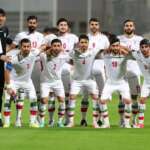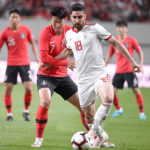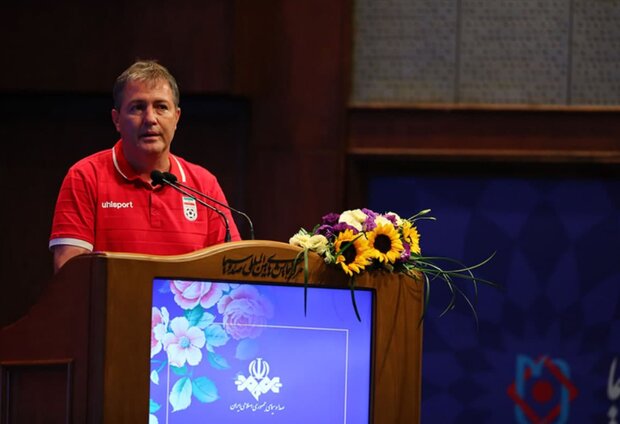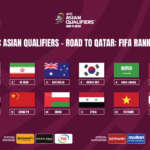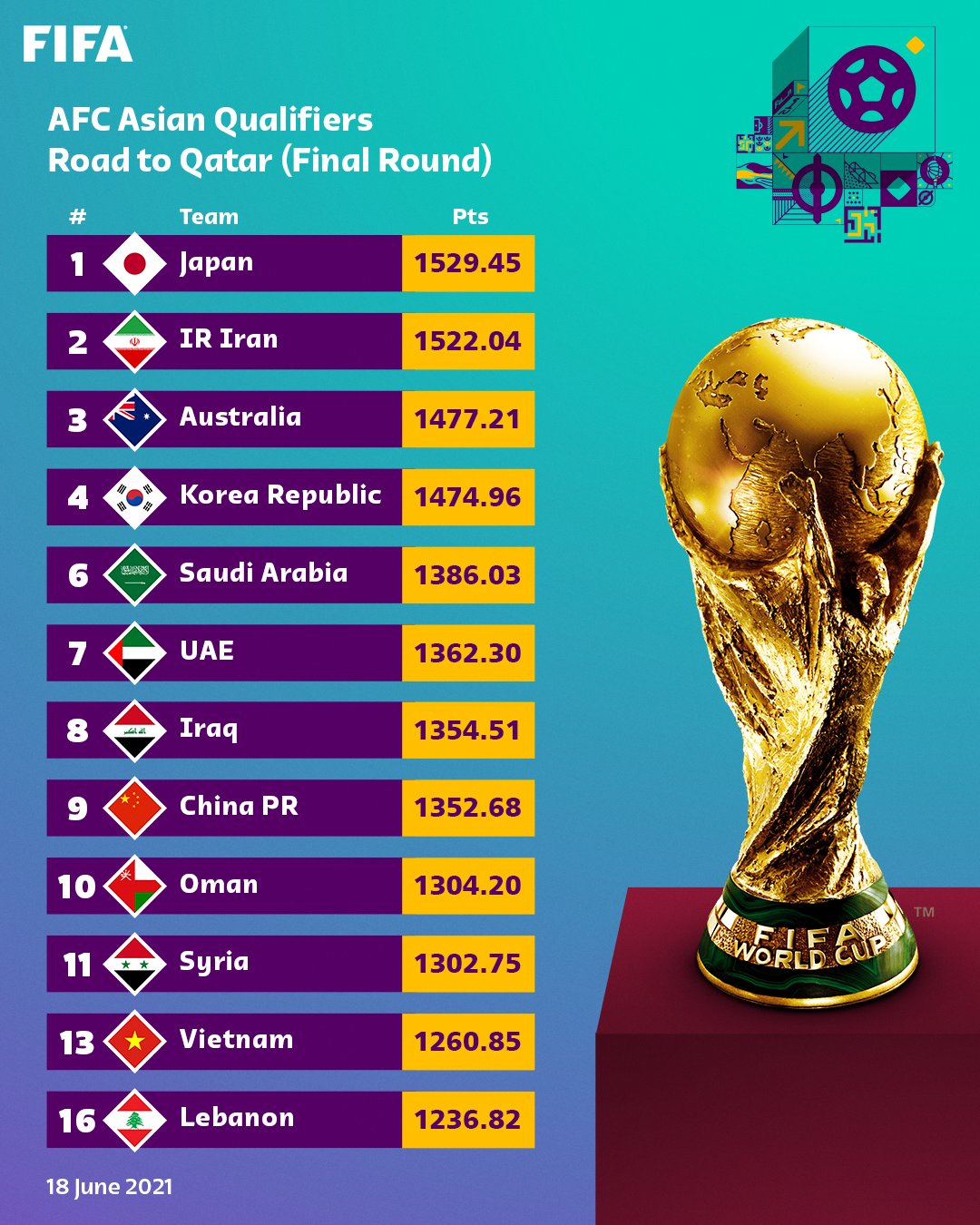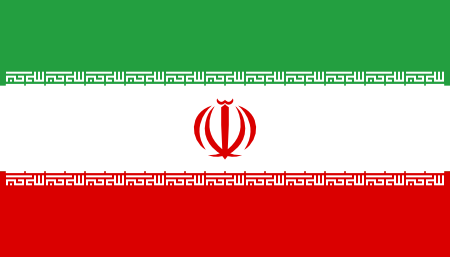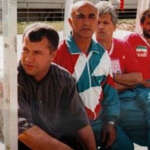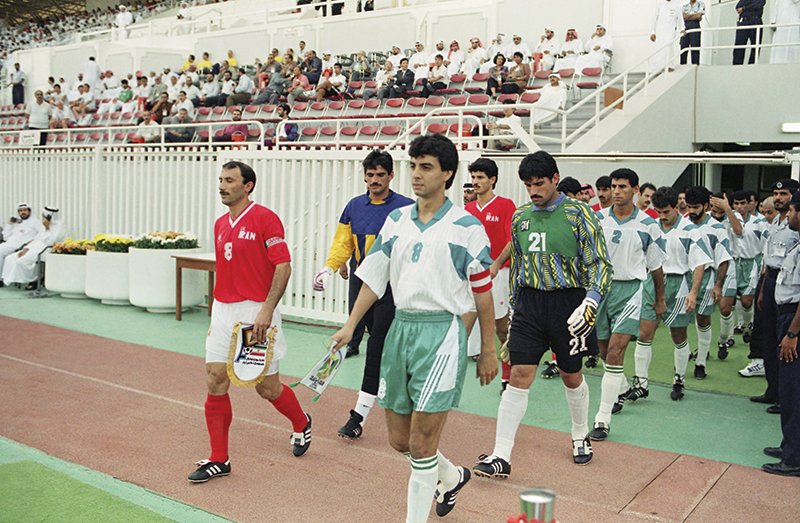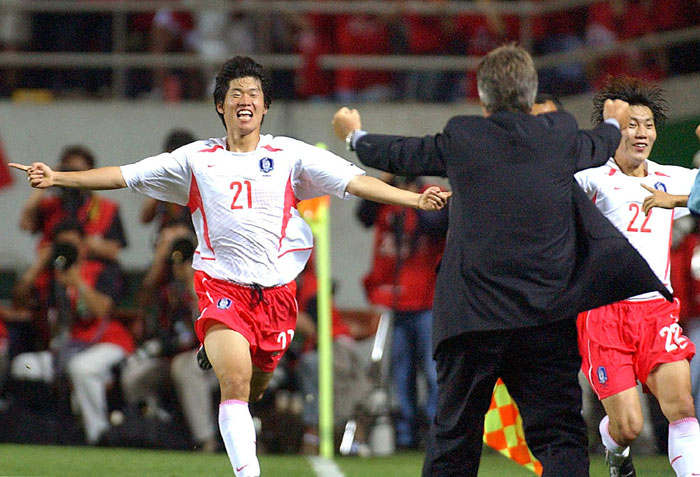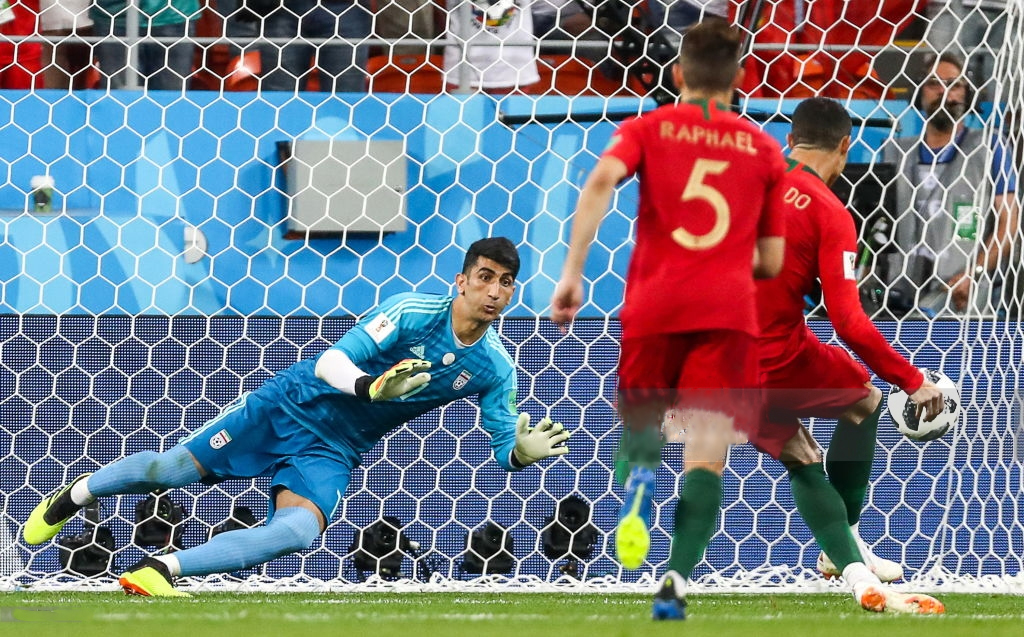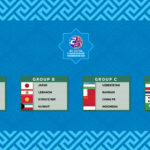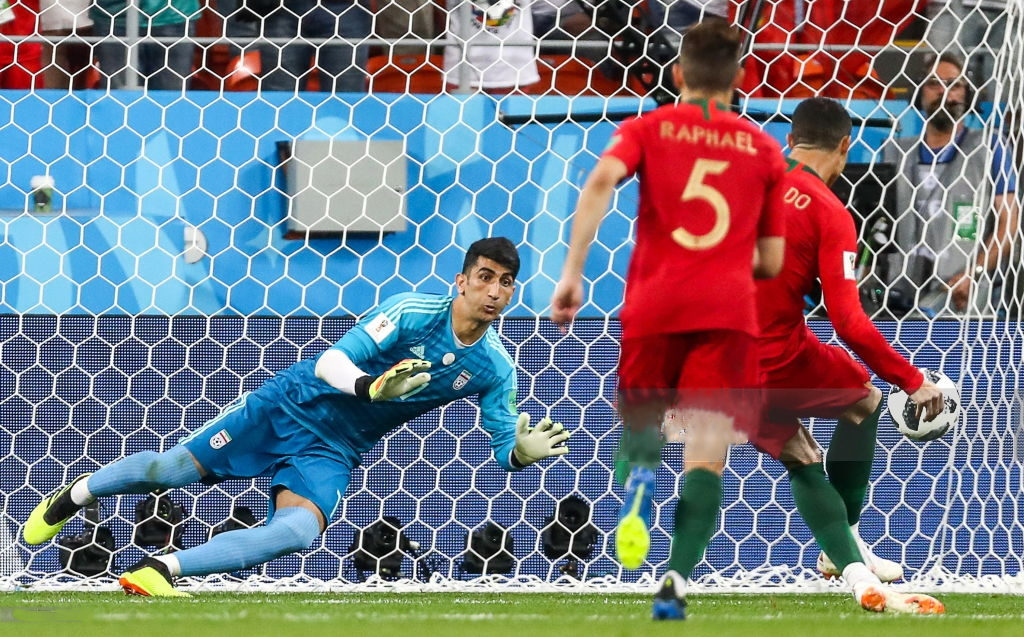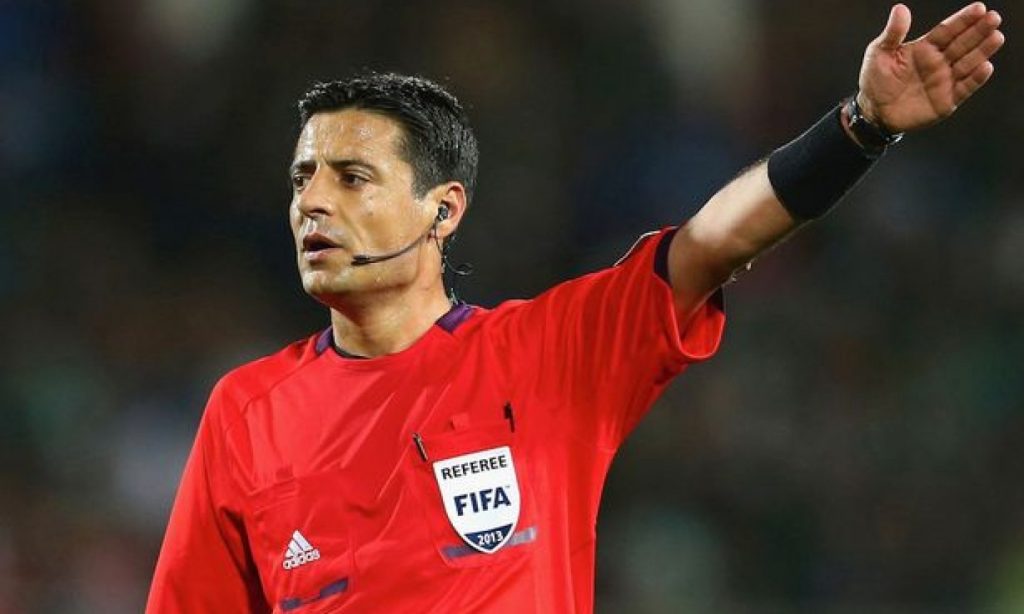Iran’s Team Melli jumped 5 places up to reach the world 26th in the latest FIFA World Ranking published today, Thursday.
with 1522 points, Iran sits behind Japan who is up to 24th in the world, and 7 points more than Iran. This ranking of Iran, one of the highest in many years, has been achieved with a perfect record of results in the FIFA World Cup Qatar 2022 Second Round qualifiers. All the matches played in Bahrain with Iran managing to get 4 out of 4 wins.
AFC |
FIFA |
Country |
Total Points
|
Previous PTS | +/- |
|
|
1 |
24 |
|
Japan |
1529
|
1509 | 20 |
|
2 |
26 |
|
Iran |
1522
|
1500 | 22 |
|
3 |
35 |
|
Australia |
1477
|
1457 | 20 |
|
4 |
36 |
|
Korea Republic |
1475
|
1460 | 15 |
|
5 |
42 |
|
Qatar |
1455
|
1398 | 57 |
|
| 7 | 68 | United Arab Emirates | 1362 | 1330 | 32 | ||
| 8 | 70 | Iraq | 1355 | 1353 | 2 | ||
| 11 | 80 | Syria | 1303 | 1304 | -1 | ||
| 16 | 98 | Lebanon | 1238 | 1256 | -18 | ||

